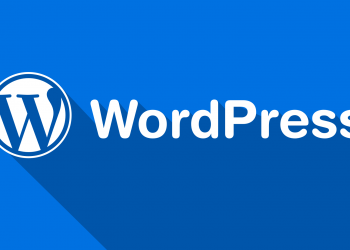WordPress is a popular content management system (CMS) that allows users to create and manage websites with ease. Originally launched in 2003, it has since become one of the most widely used platforms on the web, with millions of websites powered by WordPress.
Advantages of WordPress:
User-Friendly: WordPress is known for its user-friendliness. It doesn’t require any coding knowledge, which makes it easy for beginners to get started. The platform also offers a variety of themes and plugins to customize your website to your liking.
SEO-Friendly: WordPress is SEO-friendly, meaning it’s optimized for search engines. It offers features such as custom URLs, title tags, and meta descriptions, which are essential for improving your website’s visibility in search engine results pages.
Large Community: WordPress has a large community of users and developers who regularly contribute to the platform. This means that there are always new updates and features being added, as well as plenty of support available in case you run into any issues.
Flexibility: WordPress is a highly flexible platform that can be used for a variety of purposes. Whether you want to create a simple blog or a complex e-commerce site, WordPress has the tools and resources to make it happen.
Cost-Effective: WordPress is a cost-effective option for creating a website. While there may be some costs associated with hosting and customizing your site, the platform itself is free to use.
Disadvantages of WordPress:
Security: WordPress is vulnerable to security breaches if not properly maintained. Users need to keep their website updated with the latest security patches and plugins to minimize the risk of hacking.
Customization: While WordPress offers a wide range of customization options, some customization requires coding knowledge or the help of a developer. This can be a disadvantage for users who want to create a unique website but lack the technical skills to do so.
Speed: WordPress can be slow to load, especially if the website has a lot of plugins or a heavy theme. This can impact user experience and search engine rankings.
Plugin Compatibility: Not all WordPress plugins are compatible with each other. If you have multiple plugins installed, they may conflict with each other and cause issues on your website.
Support: While WordPress has a large community, it may be difficult to find the right support for your specific needs. Some issues may require the help of a professional developer, which can be costly.
Getting started with WordPress is relatively easy. First, users need to choose a web hosting provider and domain name for their website. Next, they can install WordPress and select a theme and plugins to customize their website. Once the website is set up, users can begin creating and publishing content.
In conclusion, WordPress is a powerful CMS with many advantages for creating and managing a website. However, it also has some disadvantages, such as security vulnerabilities and speed issues. Despite these challenges, WordPress remains a popular choice for both beginners and experienced website developers due to its user-friendly interface, SEO capabilities, flexibility, and cost-effectiveness














